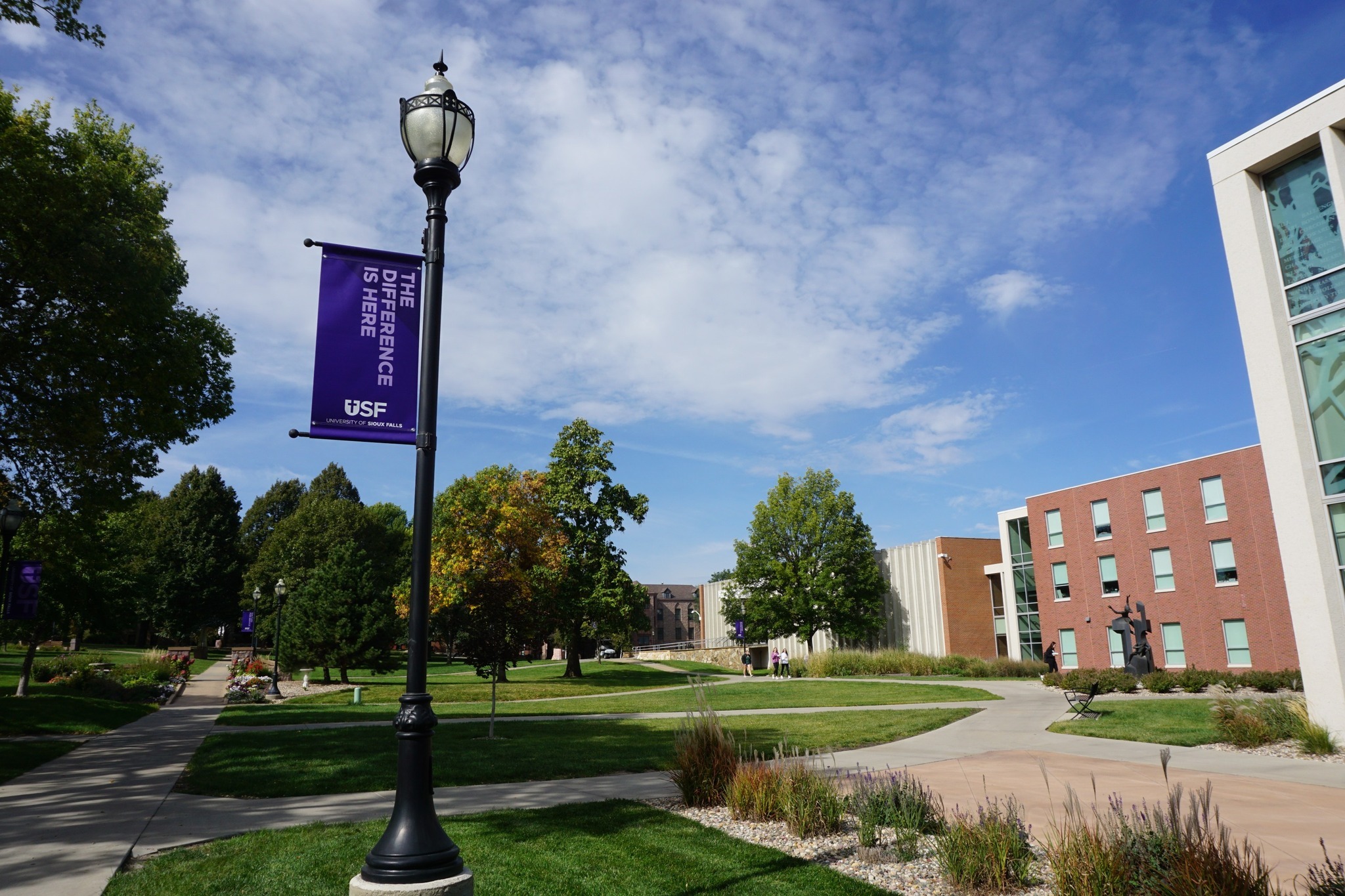Statement on Diversity, Inclusion, Social Justice, Civic Engagement & Advocacy at USF

USF Community,
One way in which 2020 unfortunately has been closer to “normal” than not are the pre-judgements and tragedies that continue to occur in communities across our nation and in our back yard including based on skin color and structures that fail to safeguard fair and equitable opportunities and treatment of members of our communities. Immediately it was unequivocally clear to USF leadership that the tragic death of George Floyd was wrong. It has taken time, however, to determine how we can meaningfully be a part of a lasting solution that will stand the test of time.
Some want to have seen a more swift and forceful response over the course of this summer from our University. Some expressed hurt by a lack thereof. While even the opinions of members of this newly-formed committee vary, we firmly agree that no hurts or dismissals were intended. Google “lip service George Floyd” for page after page of results on how institutions and entire industries have been saying the right things in the wake of tragedy but not taking meaningful steps to follow through with durable action. USF is keenly interested in getting the durable action part right.
So what has USF done since May? This summer, USF began work on a sustainable and durable action plan in alignment with its mission to make the conversation on social justice in America more accessible and deliberate. Some actions were straightforward to determine and execute. In a move unprecedented at least as far back as the 2000s and perhaps in the entire history of the institution, a group of USF faculty (the Academic Area Chairs) met on a weekly basis throughout the entire summer as they were also retooling fall courses for four different delivery methods necessitated by COVID-19. Under the direction of Dr. Joy Lind, Vice President for Academic Affairs, USF faculty examined their coursework to determine where it would be appropriate to address topics related to diversity and social justice. As a matter of both due recognition and education, faculty were asked to document how they were already addressing such issues in those courses and/or how they would add content to those courses this fall to do so. The resulting list includes over 40 courses from many faculty across many disciplines. These changes have already been implemented for the current, fall 2020 semester.
Other needed actions have not been as quick to identify and require collaboration, input and the efforts of many to identify and act upon. Some faculty have requested opportunities to be better equipped to guide these discussions with humanity and take them beyond an academic exercise. Other members of our USF community have requested a review of campus policies for things like financial aid, and there is a desire to find new ways to support all members of the USF community. These are just a few examples.
This work now continues with this task force. The group’s various goals ultimately boil down to purposefully building a stronger campus culture that proactively seeks equity and education opportunities for all. Our major goals and actions as they are developed will be tied to our institution’s strategic plan as a means of ensuring a lasting and meaningful impact backed by resources and monitored for success and progress.
As an institution of higher learning that proudly centers its identity and mission around Christ and His life-changing, radical love, USF is uniquely positioned and equipped to make an impact on issues of human dignity and social justice that are fully aligned with its longtime mission and motto. Our mission is to educate students in the humanities, sciences and professions; and our traditional motto of Culture for Service is to seek to foster academic excellence and the development of mature Christian persons for service to God and humankind in the world.
On today’s important issues of social justice and human dignity, we are called to lead by example and make an impact in our sphere of influence using our unique resources to make a meaningful and lasting impact. It is our responsibility to produce graduates who are equipped to go out into the world and do the same.
We know that a perfect consensus on what needs to be done within our nation or within our community is not possible, but what we can agree on is that the University has a responsibility to its people and to its mission to put time, effort and resources in supporting the cause of humanity and dignity and equitable opportunity for all.
May God help us at the University of Sioux Falls to be instruments of peace and progress and to be used by God to redeem these difficult times.
Sincerely,
Members of the Task Force on Diversity, Inclusion, Social Justice, Civic Engagement and Advocacy
(Alphabetically)
Mekonnen Afa, International Education and Human Resources Associate
Karen Bangasser, Director of Presidential and Board Operations
Dr. Brett Bradfield, President
Apolonia Davalos, Student
Dr. Jason Douma, Associate VP for Institutional Research/Professor, Mathematics
Pam Gohl, Athletic Director
Allan Idjao, Associate Director of Student Life
Dr. Joy Lind, VP for Academic Affairs
Dr. George Mwangi, Associate Professor, Chemistry
Dr. Randy Nelson, Associate Professor, Education/Director of International Education
Mercy Oyadare, Student
Alex Ramirez, Member, USF Board of Trustees
Sarah Strasburg, Director of Marketing & Communication